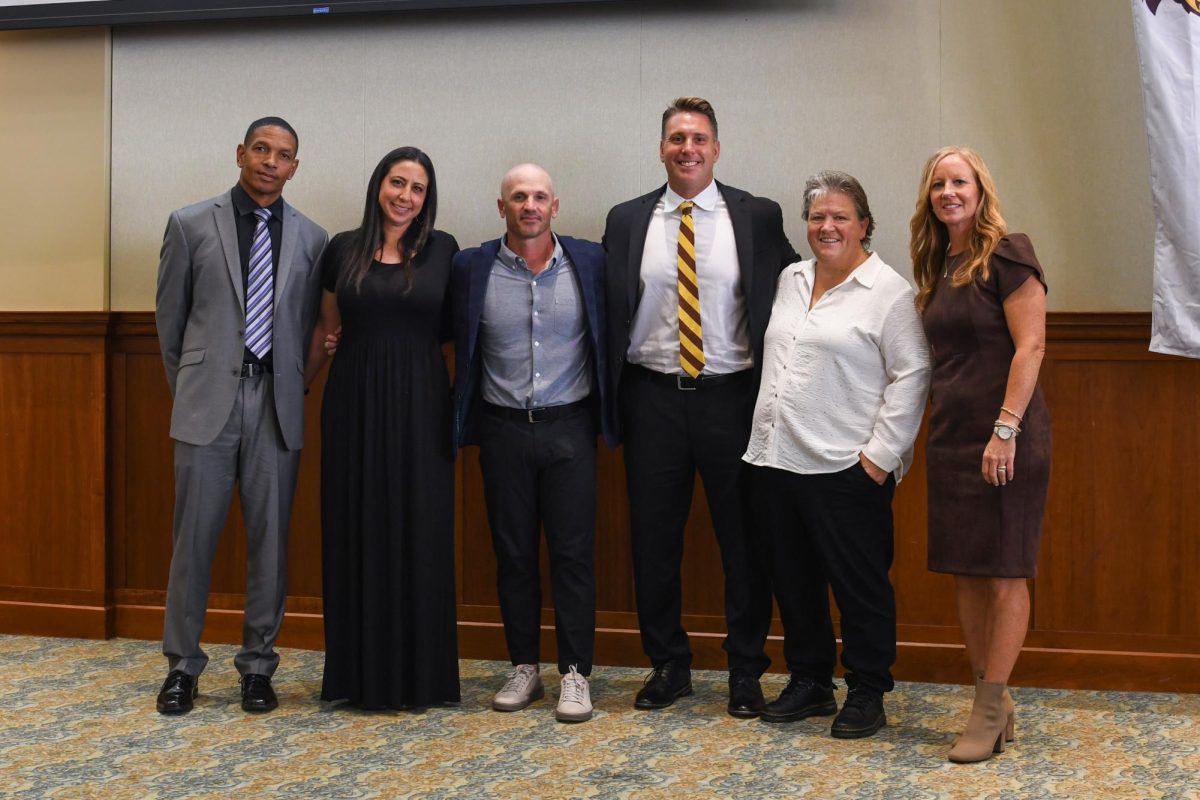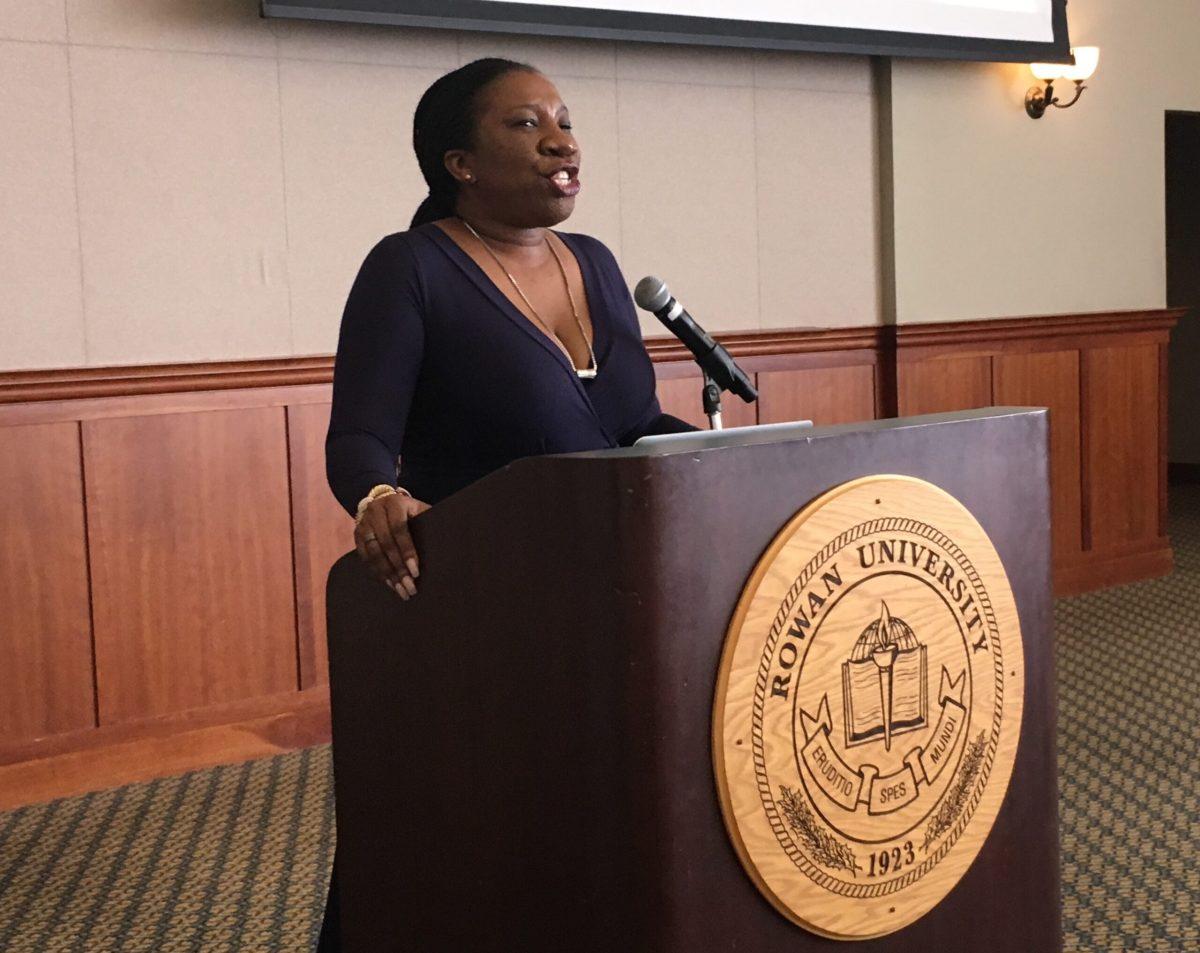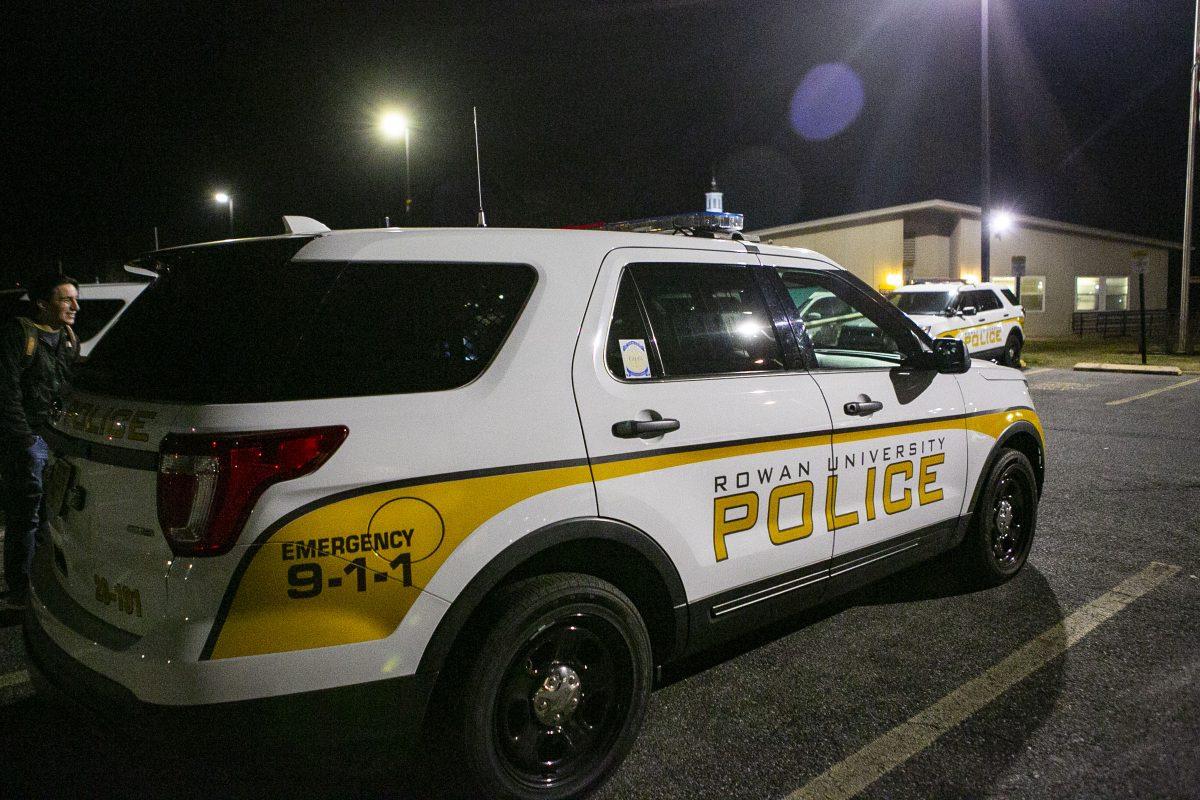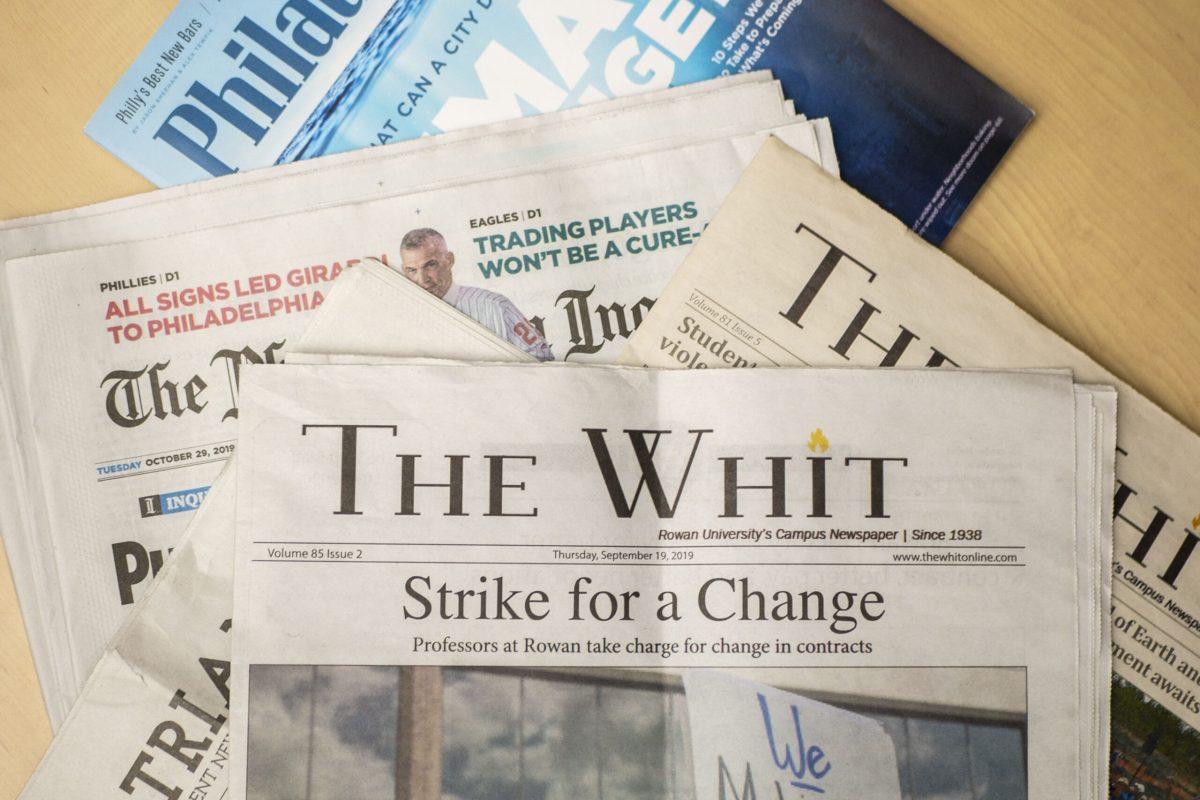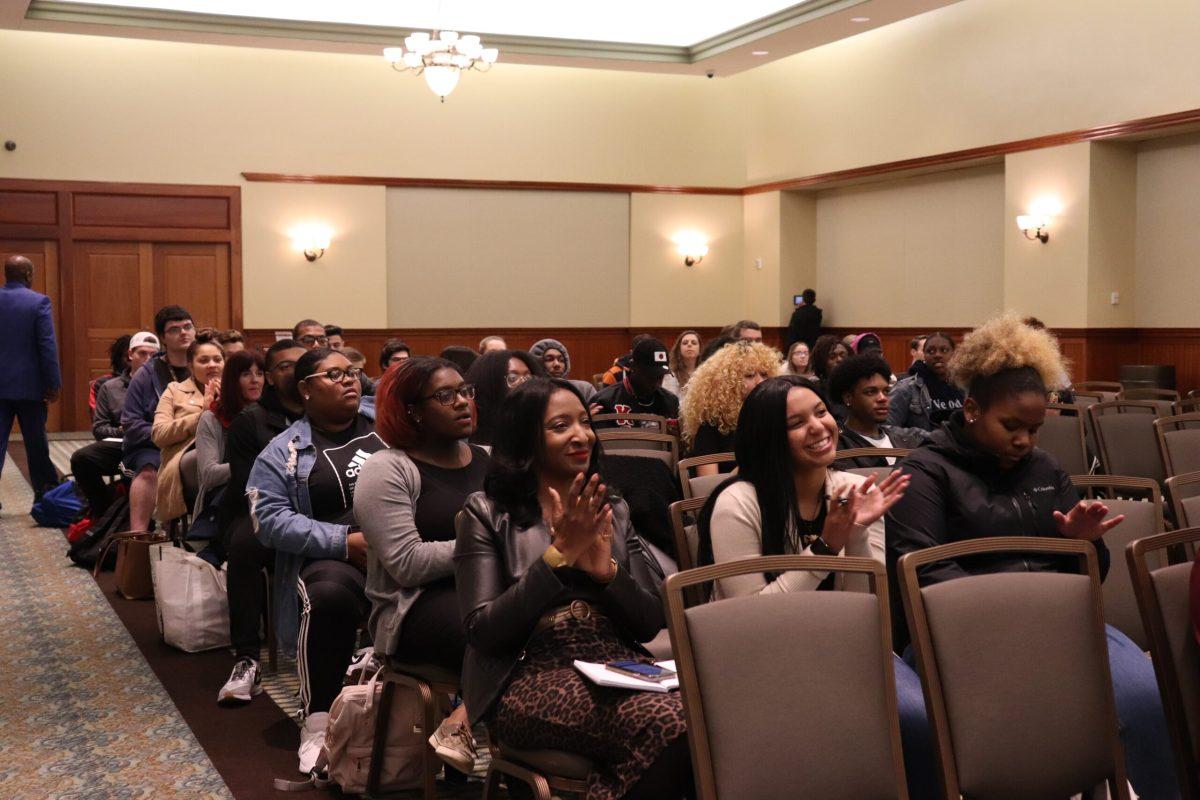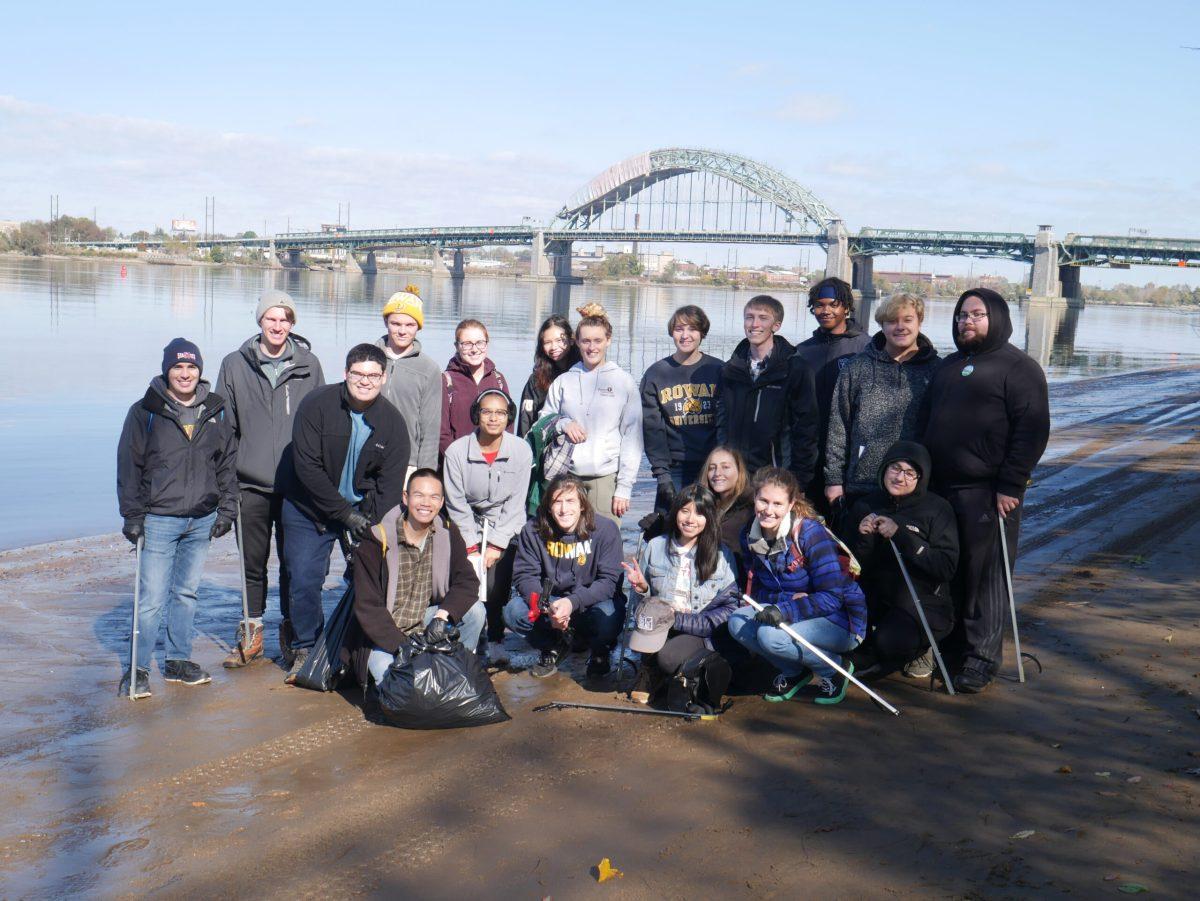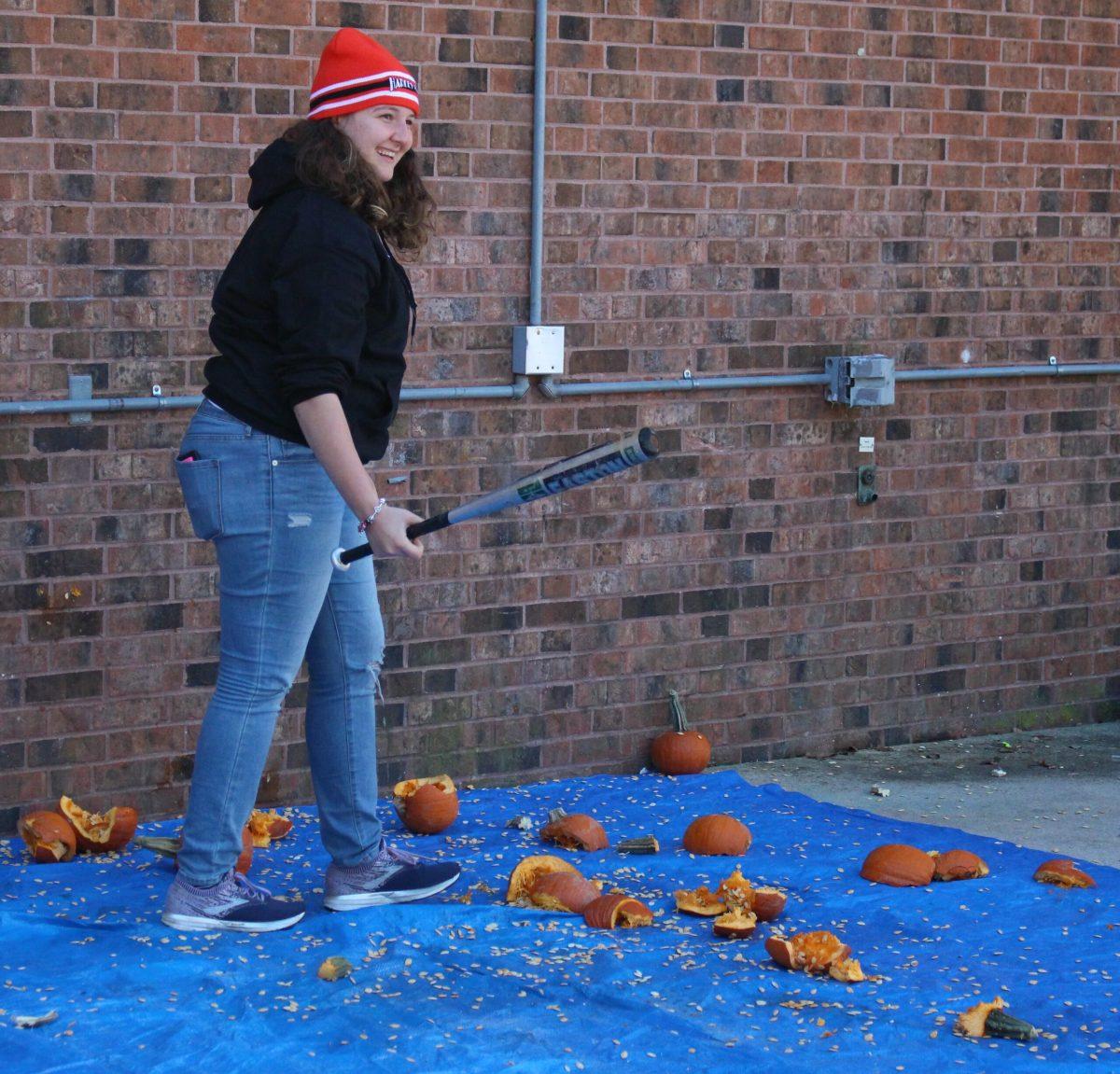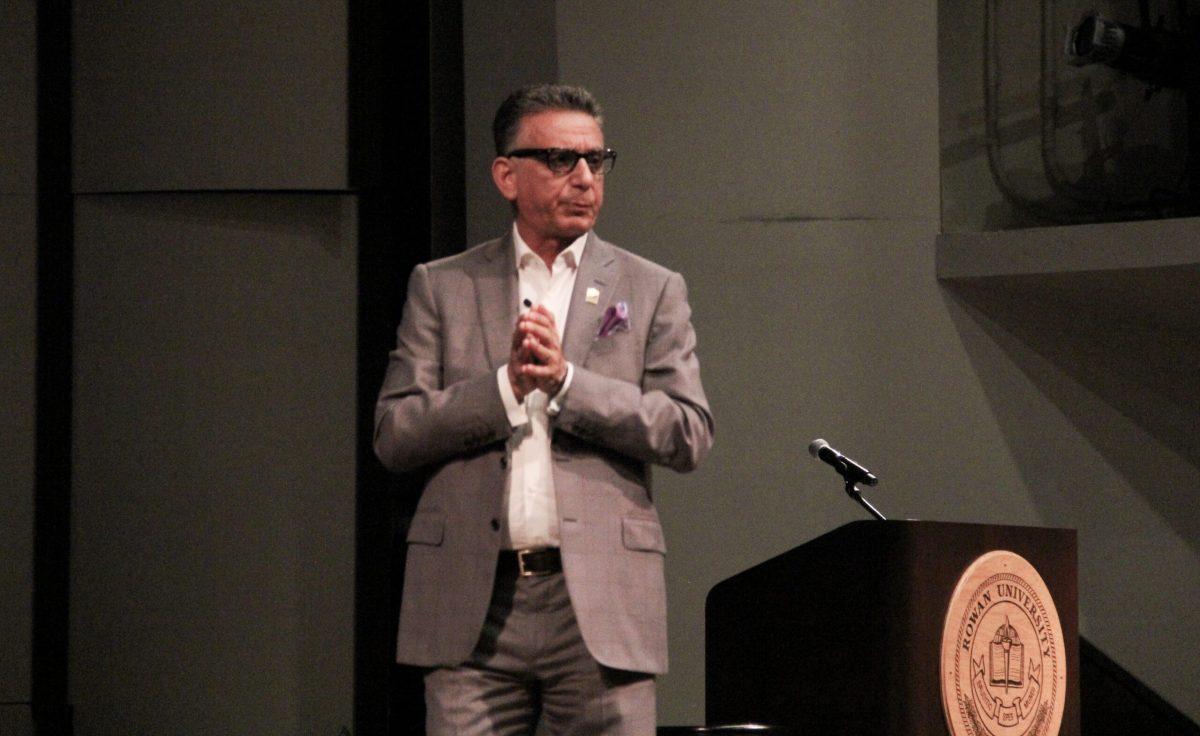Thursday Afternoon in the Eynon Ballroom, Tarana Burke, the founder of the #MeToo movement delivered the keynote address to the Feminist Activist Symposium which was presented by the Rowan University Women’s Center.
Burke spoke about her experiences in life that led her to the creation of the movement, including growing up in a house in the Bronx where her parents surrounded her with black feminist ideals. She said that growing up she saw things happening in her community that she wanted to change, but she didn’t have the skills to do so at that point in her life. Becoming a community organizer was her plan to change that.
She then went on to describe the start of her career as a community organizer in 1989 and talked about some of the work she did, including protesting against then real-estate developer Donald Trump for his stance on the Central Park Five case. But the genesis of what would later become the movement was birthed while Burke was working at a camp. One of her campers told Burke she had been molested by her mother’s boyfriend. While Burke admitted she didn’t have the skills to properly deal with the situation then, the conversation with the camper became the catalyst for what would eventually be the #MeToo movement.
Speaking after the meeting, Burke said that the reason she goes to Rowan and other schools to speak is to inspire the next group of leaders.
“I think that this generation is going to be where the movement lives,” Burke said. “So it’s incredibly important to speak directly to young people, who are going to carry this work. I don’t even think in five years I’ll be at the forefront of this, and I shouldn’t be. It should be these people and people younger than them. And so it’s important for me to share our vision for a way forward so that when they take over, they can carry that vision out. And if I can leave something that motivates people to be active either in this work or work that’s going to change our world, I absolutely want to do that.”
Along with Burke’s keynote speech, the symposium included several other activities, including group discussion sessions and safe zone training. Bri Ozalas, a senior communication studies major, was one of the student volunteers who helped with the discussion session. She said that being able to work with social justice organizations on campus is a worthwhile pursuit.
“Just being a part of this kind of collective organization on campus is important for representation, and also being able to provide a platform for people who don’t usually get a voice,” Ozalas said.
When asked for her thoughts on Burke’s speech, Ozalas said that it was insightful to hear Burke speak about her journey in life and how it shaped her.
“Listening to Tarana speak was incredible and it provided a lot of insight to her journey,” Ozalas said. “And to show that she has been working this whole time, but it just took the spark of a hashtag to really get people talking, and I think that that’s just incredible.”
Burke’s speech and the symposium itself was a highlight of the Office of Social Justice, Inclusion and Conflict Resolution’s programming for Women’s History Month. For more information of programs offered by SJICR, visit their website.
For questions/comments about this story, email [email protected] or tweet @TheWhitOnline.
















